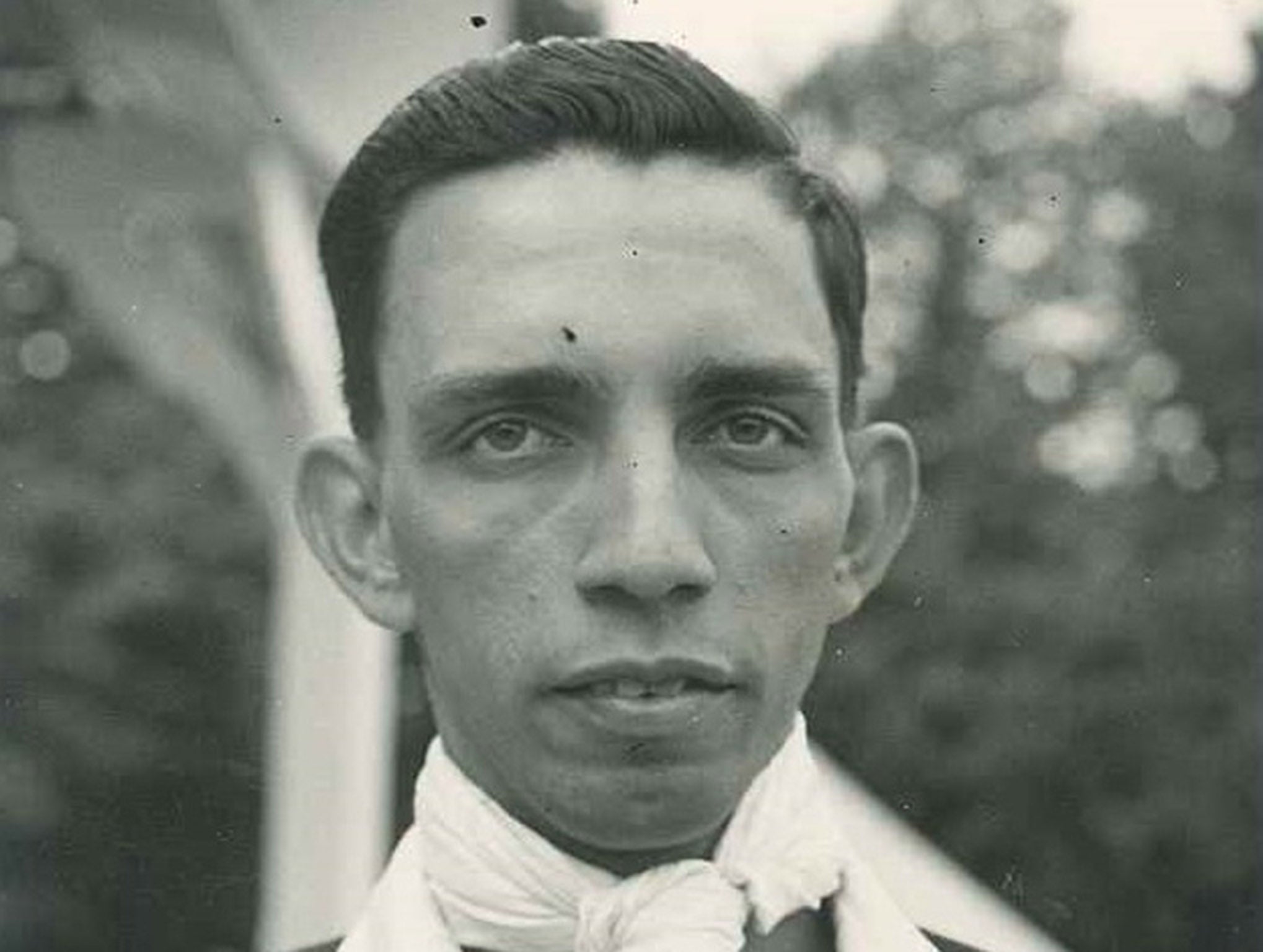Peter Wight: Cricketer who became Somerset’s most successful post-war batsman
Legendary were his battles with Surrey paceman Peter Loader

Peter Wight was a shivering 20-year-old, a frail figure of nine stone, when he arrived from British Guiana in the cold spring of 1951. He had been working for a warehouse on Georgetown docks. “If you want to go to England, there’s a place on this boat,” he was told. Three days later, with a new passport and a family in tears, he set off. “I didn’t have any warm clothes,” he remembered. “We passed the Azores, and I froze.”
His family was of Scottish/Portuguese ancestry. His branch of it was poor, but there was sporting talent. His brother Leslie and cousin Vibert played cricket for the West Indies, while other brothers represented their country at hockey, tennis and football. He himself had just made his cricketing debut for British Guiana, and it was through a friend playing in the leagues that he found his way to Lancashire. The landlady where he was taken for lodgings was full up, but, she said, “We’ll have him. He looks pathetic.”
Wanting to be an engineer, he found work in a garage and attended night classes. He had chapped hands from the cold, rationing left him hungry and, when his employer refused to release him for his exams, he sailed to Canada, then came back to a factory job. He played cricket for Burnley, and when he visited his sister in Bridgwater in the summer of 1953, her husband said, “Why don’t you play for Somerset? They’ve got no players.” Next day they went down to Taunton by bus.
The county was at its lowest ebb and, after a good performance for the second XI, he was pitched into the first team to play the touring Australians. Out for a duck, he was in low spirits and lonely, shocked by the gambling when the two teams played skittles in the evening. “Don’t worry,” the young Richie Benaud consoled him. “You’ll get a century in the second innings.” And he did.
There followed 12 summers when he delighted the Somerset faithful with his wristy batting, relying on his quick eye to drive the ball on the up, on uncovered pitches very different from the shiny surface of Georgetown’s Bourda. He did not get his front foot close to the ball, and that led some to think he was frightened of the quickest bowling, especially when he backed to leg and flicked short-pitched deliveries through the off side.
Legendary were his battles with Surrey paceman Peter Loader, who liked to add verbal accompaniment to his menace, some of it about Wight’s skin colour (though in Georgetown he had been a white man). “Even now it hurts to think of it,” he said 50 years later. “It’s unnecessary.”
He answered with his bat, never more remarkably than on an awkward track at the Oval in 1956. In the first innings he alone made runs, with a valiant 62 not out. “I came in and sat down. We had to follow on, and they said, ‘Don’t take your pads off.’ So I had a drink and a stretch and, blow me down, within minutes, ‘You’re in, Peter.’” Loader took seven wickets as Somerset were all out for 196. The waif-like Wight, at his majestic best, came off with 128 not out.
“There was always a lovely ring to his bat,” team-mate Graham Atkinson said. “He seemed to middle the ball so well. If he’d gone out with an old chair leg, there’d still have been a nice ring to it. I used to stand at the other end and drool at the shots he played.”
The only bowler he never mastered was Fred Trueman, but there was revenge of a sort at Taunton in 1962. Vic Wilson, Yorkshire captain, dropped the England star for not arriving on time, and Wight celebrated with the second double century of his career. He passed 2,000 runs that summer, as he did in 1960, when he was first in the country to the landmark. In all, he scored 16,965 first-class runs for Somerset, more than any other batsman since the war, second in the all-time list to Harold Gimblett.
He even had days of glory with his off-breaks. Once at Chesterfield he came on, seventh-choice bowler, and won the match with six wickets for 29 runs.
For 30 years he was a first-class umpire. As in his playing days he retained a quiet independence, not getting drawn into the beery camaraderie, not afraid to give lbws or uphold regulations. In all, as player and umpire, he took the field in 895 first-class matches in England, more than anyone since the war.
After his playing days he set up a cricket school in Bath, where he spent his winters coaching. His favourite club was the Somerset Wanderers Ladies, whom he and his wife Joyce supported with great generosity. Never losing his high-pitched Caribbean accent, he infected the juniors’ Saturday afternoon sessions with a great sense of fun. They all loved him.
It is hard to think of a cricketing immigrant who has given more to the English game – and he only came here to study engineering.
Peter Bernard Wight, cricketer and umpire: born Georgetown, British Guiana 25 June 1930; married Joyce (one daughter, one son); died Ross-on-Wye 31 December 2015.
Join our commenting forum
Join thought-provoking conversations, follow other Independent readers and see their replies
Comments
Bookmark popover
Removed from bookmarks